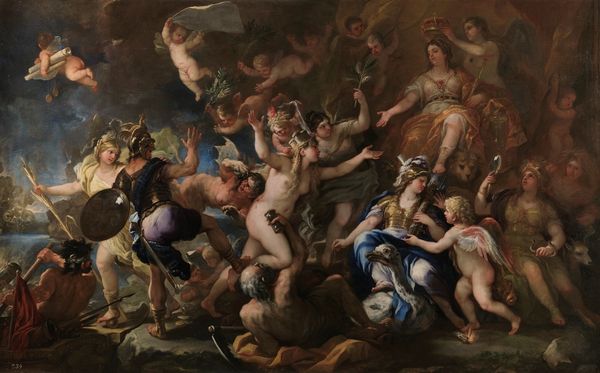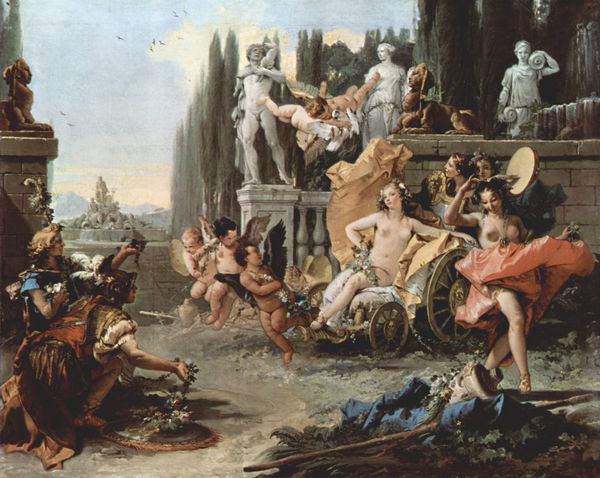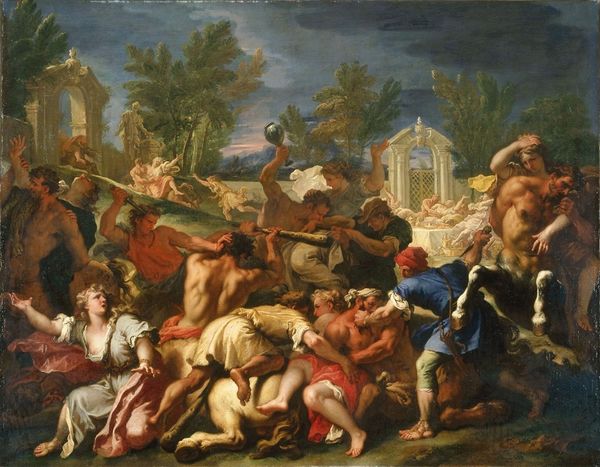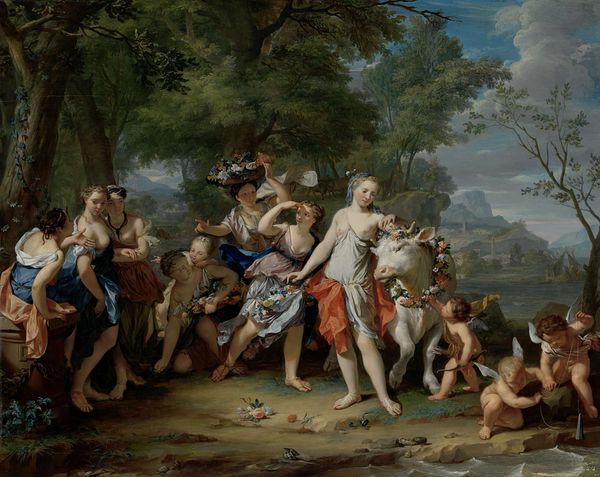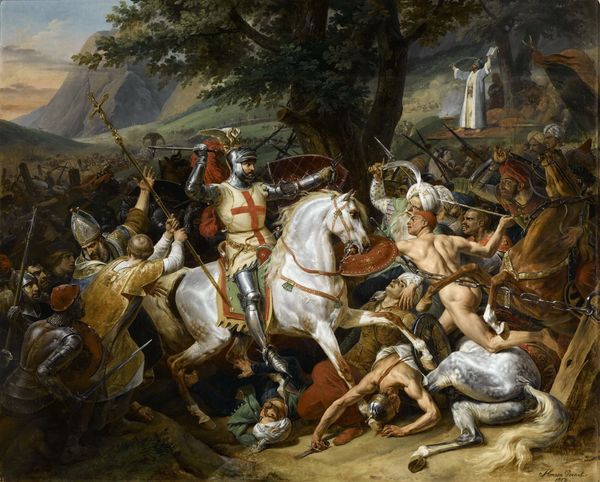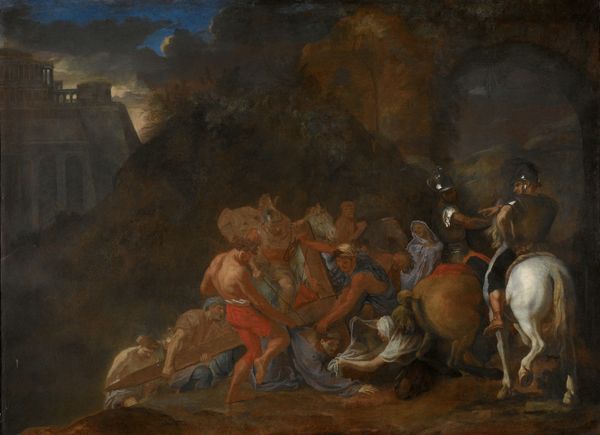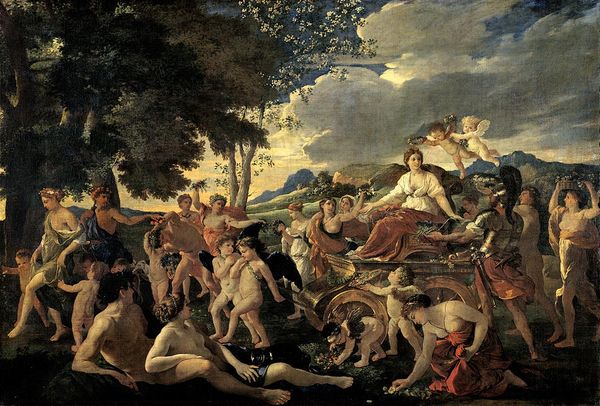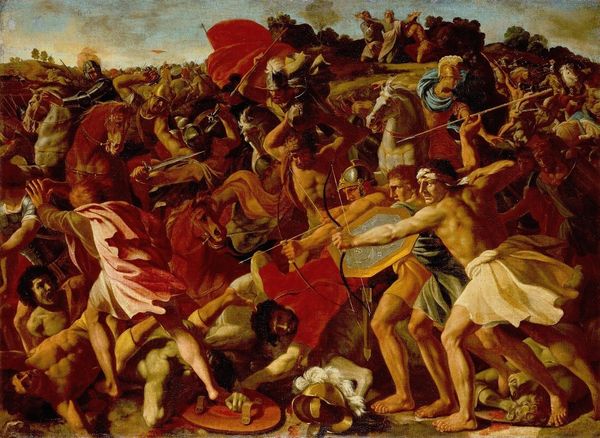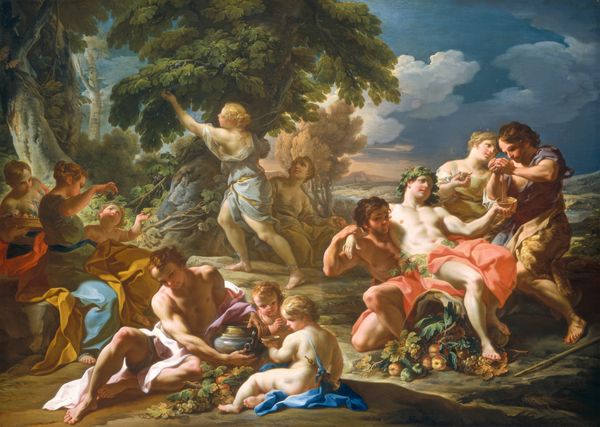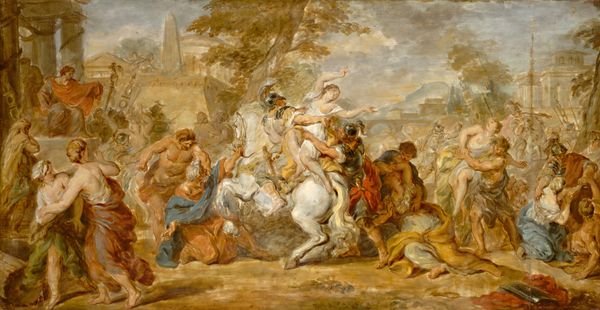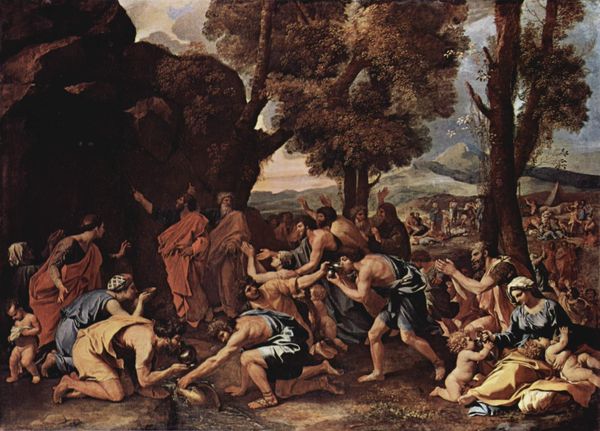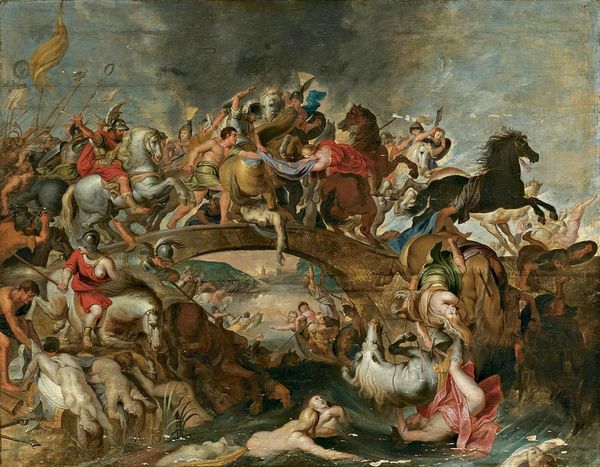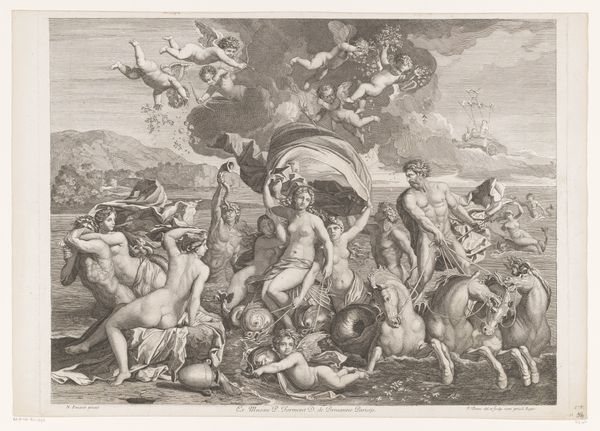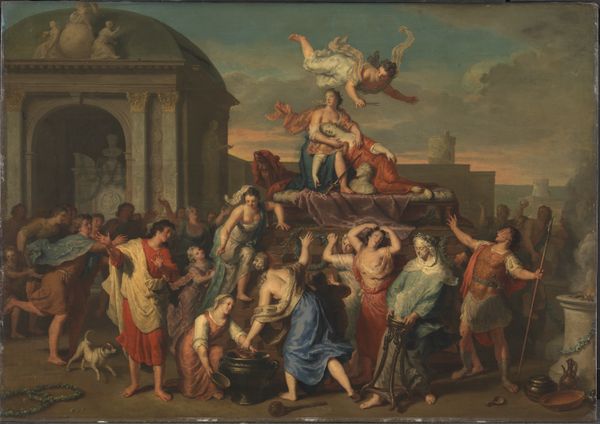
painting, oil-paint
allegory
baroque
painting
oil-paint
landscape
figuration
oil painting
classicism
history-painting
nude
Copyright: Public domain
Editor: Here we have Nicolas Poussin’s "The Triumph of Bacchus," created in 1636 using oil paint. It's quite a dynamic scene, full of figures and a lot of implied movement, almost chaotic, actually. How do you interpret this work, thinking about it as an object? Curator: Well, let's consider what "triumph" meant in the 17th century. It wasn't just about celebration, but also power, conquest, and crucially, material display. The oil paint itself, painstakingly applied to create textures of skin, foliage, and drapery, demonstrates skill and investment. Note the luminosity achieved – think of the cost of pigments and the labor involved. Does the painting itself, as a commodity, mirror the opulence and excess it depicts? Editor: So, you're saying the act of creating something this elaborate also communicates wealth and status? That the physical materials speak as loudly as the subject matter? Curator: Precisely. The materiality isn't separate from the meaning, it reinforces it. Poussin’s engagement with classicism reflects not just an artistic preference, but also a system of patronage, workshop production, and market exchange. We have a division of labor here that results in this complex object for consumption. Consider what it means to 'own' this level of skill and craftsmanship. Where might this have originally hung? Editor: Perhaps in the home of someone who wanted to signal their classical education, their access to the finer things... Okay, I see. So, the painting is a form of material propaganda almost? Curator: In a way, yes. The Triumph isn't just about Bacchus; it's about the triumph of artistry, skilled labor, and the economic power to commission and possess such a work. We cannot look past what has to be in place to get to the final product. What does that suggest about consumption today, I wonder? Editor: That's fascinating, looking at the raw materials and the processes that made it into a signifier of wealth and prestige! It gives me a whole new way to appreciate art beyond just the imagery.
Comments
No comments
Be the first to comment and join the conversation on the ultimate creative platform.
